中華人民共和國教育法(2015修正)(中英文對照版)
1995年3月18日第八屆全國人民代表大會第三次會議通過根據2009年8月27日第十一屆全國人民代表大會常務委員會第十次會議《關於修改部分法律的決定》第一次修正根據2015年12月27日第十二屆全國人民代表大會常務委員會第十八次會議《關於修改〈中華人民共和國教育法〉的決定》第二次修正
法律文本
中華人民共和國教育法(2015修正)
Education Law of the People’s Republic of China (Revision 2015)
(1995年3月18日第八屆全國人民代表大會第三次會議通過根據2009年8月27日第十一屆全國人民代表大會常務委員會第十次會議《關於修改部分法律的決定》第一次修正根據2015年12月27日第十二屆全國人民代表大會常務委員會第十八次會議《關於修改〈中華人民共和國教育法〉的決定》第二次修正)
(Adopted at the 3rd session of the 8th National People 's Congress on March 18, 1995; amended for the first time according to the Decision on Amending Certain Laws passed at the 10th session of the Standing Committee of the 11th National People's Congress on August 27, 2009; and amended for the second time according to the Decision on Revising the Education Law of the People's Republic of China passed at the 18th session of the Standing Committee of the 12th National People's Congress on December 27, 2015)
第一章 總則
Chapter 1 General Provisions
第一條 為了發展教育事業,提高全民族的素質,促進社會主義物質文明和精神文明建設,根據憲法,制定本法。
Article 1 This Law is formulated in accordance with the Constitution with a view to developing the cause of education, enhancing the quality of the entire nation and promoting the socialist material as well as spiritual civilization.
第二條 在中華人民共和國境內的各級各類教育,適用本法。
Article 2 This Law shall be applicable to education of all types and at all levels offered within the territory of the People's Republic of China.
第三條 國家堅持以馬克思列寧主義、毛澤東思想和建設有中國特色社會主義理論為指導,遵循憲法確定的基本原則,發展社會主義的教育事業。
Article 3 In developing the cause of socialist education, the State adheres to taking Marxism, Leninism, Mao Zedong Thought and the theory of building socialism with Chinese characteristics as its guidelines and follows the basic principles defined in the Constitution.
第四條 教育是社會主義現代化建設的基礎,國家保障教育事業優先發展。
Article 4 Education is the basis of the socialist modernization, and the State ensures priority to the development of educational undertakings.
全社會應當關心和支持教育事業的發展。
The entire society should show concern for and give support to the development of educational undertakings.
全社會應當尊重教師。
The entire society shall respect teachers.
第五條 教育必須為社會主義現代化建設服務、為人民服務,必須與生產勞動和社會實踐相結合,培養德、智、體、美等方面全面發展的社會主義建設者和接班人。
Article 5 Education shall serve the socialist modernization drive and the people and shall be combined with productive labour and social practice in order to train for the socialist cause builders and successors who are developed in an all-round way-morally, intellectually and physically.
第六條 教育應當堅持立德樹人,對受教育者加強社會主義核心價值觀教育,增強受教育者的社會責任感、創新精神和實踐能力。
Article 6 Moral composition and capacity building shall be followed in education. We shall strengthen educatees' socialist core values; enhance their sense of social responsibility, spirit of innovation and practical ability.
國家在受教育者中進行愛國主義、集體主義、中國特色社會主義的教育,進行理想、道德、紀律、法治、國防和民族團結的教育。
The State conducts education among the educated in patriotism, collectivism, socialism with Chinese characteristics, as well as in the importance of ideals, ethics, discipline, the rule of law, national defense and national unity.
第七條 教育應當繼承和弘揚中華民族優秀的曆史文化傳統,吸收人類文明發展的一切優秀成果。
Article 7 In education, the brilliant historical and cultural tradition of the Chinese nation shall be inherited and carried forward and all other excellent achievements of human civilization shall be absorbed.
第八條 教育活動必須符合國家和社會公共利益。
Article 8 Educational activities shall conform to the national and public interests.
國家實行教育與宗教相分離。任何組織和個人不得利用宗教進行妨礙國家教育制度的活動。
The State separates education from religion. No organization or individual may make use of religion to conduct activities that interfere with the educational system of the State.
第九條 中華人民共和國公民有受教育的權利和義務。
Article 9 Citizens of the People's Republic of China have the duty as well as the right to receive education.
公民不分民族、種族、性別、職業、財產狀況、宗教信仰等,依法享有平等的受教育機會。
All citizens, regardless of ethnic group, race, sex, occupation, property status or religious belief, enjoy equal opportunities for education according to law.
第十條 國家根據各少數民族的特點和需要,幫助各少數民族地區發展教育事業。
Article 10 The State, in light of the characteristics and needs of the different minority ethnic groups, provides assistance to the development of educational undertakings in regions inhabited by the minority ethnic groups.
國家扶持邊遠貧困地區發展教育事業。
The State supports and assists the development of educational undertakings in the outlying poverty-stricken areas.
國家扶持和發展殘疾人教育事業。
The State shall support and develop educational undertakings for disabled persons.
第十一條 國家適應社會主義市場經濟發展和社會進步的需要,推進教育改革,推動各級各類教育協調發展、銜接融通,完善現代國民教育體系,健全終身教育體系,提高教育現代化水平。
Article 11 To meet the needs of developing a socialist market economy and promoting social progress, the State carries forward educational reform, promotes the coordinated development, transition and integrity of education of all types and at various levels, improves the modern national educational system, perfects the system of life-long education and improves the level of educational modernization.
國家采取措施促進教育公平,推動教育均衡發展。
The State adopts measures to promote equal access to education and balanced development of education.
國家支持、鼓勵和組織教育科學研究,推廣教育科學研究成果,促進教育質量提高。
The State supports, encourages and organizes scientific research in education, disseminate the results of scientific research in education so as to enhance the quality of education.
第十二條 國家通用語言文字為學校及其他教育機構的基本教育教學語言文字,學校及其他教育機構應當使用國家通用語言文字進行教育教學。
Article 12 The general language of the State shall be the basic spoken and written language in education and teaching in schools and other institutions of education, which shall use it for education and teaching.
民族自治地方以少數民族學生為主的學校及其他教育機構,從實際出發,使用國家通用語言文字和本民族或者當地民族通用的語言文字實施雙語教育。
In schools and other educational institutions in which students of minority nationalities constitute the majority, both the common spoken and written State language and the spoken and written language commonly used by the specific or local nationalities are used for bilingual education.
國家采取措施,為少數民族學生為主的學校及其他教育機構實施雙語教育提供條件和支持。
The State takes measures to provide conditions and supports for the implementation of bilingual education in schools and other educational institutions in which students of a minority ethnic group constitute the majority.
第十三條 國家對發展教育事業做出突出貢獻的組織和個人,給予獎勵。
Article 13 The State awards organizations or individuals that have made outstanding contributions to the development of educational undertakings.
第十四條 國務院和地方各級人民政府根據分級管理、分工負責的原則,領導和管理教育工作。
Article 14 The State Council and the local people's governments at various levels shall guide and administer the educational work under the principles of administration by different levels and of a division of responsibilities.
中等及中等以下教育在國務院領導下,由地方人民政府管理。
Secondary education and education at lower levels shall be administered by the local people's governments under the guidance of the State Council.
高等教育由國務院和省、自治區、直轄市人民政府管理。
Higher education shall be administered by the State Council, and/or the people's governments of provinces, autonomous regions, or municipalities directly under the Central Government.
第十五條 國務院教育行政部門主管全國教育工作,統籌規劃、協調管理全國的教育事業。
Article 15 The administrative department of education under the State Council shall be in charge of the nationwide educational work, and undertake overall planning, coordination and management of the educational undertakings throughout the country.
縣級以上地方各級人民政府教育行政部門主管本行政區域內的教育工作。
The administrative departments of education under the people's governments at or above the county level shall be in charge of the educational work in their respective administrative regions respectively.
縣級以上各級人民政府其他有關部門在各自的職責範圍內,負責有關的教育工作。
Other relevant departments under the people's governments at or above the county level shall be responsible for the related educational work within the scope of their functions and duties.
第十六條 國務院和縣級以上地方各級人民政府應當向本級人民代表大會或者其常務委員會報告教育工作和教育經費預算、決算情況,接受監督。
Article 16 The State Council and the local people's governments at or above the county level shall report to the people's congresses at the corresponding levels or their standing committees on the work of education and on the budgets and final accounts of the operating expenses for education, which shall be subject to supervision.
第二章 教育基本制度
Chapter Two Basic System of Education
第十七條 國家實行學前教育、初等教育、中等教育、高等教育的學校教育制度。
Article 17 The State applies a school education system embracing pre- school education, primary education, secondary education and higher education.
國家建立科學的學制系統。學制系統內的學校和其他教育機構的設置、教育形式、修業年限、招生對象、培養目標等,由國務院或者由國務院授權教育行政部門規定。
The State establishes a scientific educational system. The establishment, forms of education, length of schooling, enrollment targets, objectives of training, etc. of schools and other educational institutions governed by the schooling system shall be prescribed by the State Council or the administrative department of education empowered by the State Council.
第十八條 國家制定學前教育標準,加快普及學前教育,構建覆蓋城鄉,特別是農村的學前教育公共服務體系。
Article 18 The State formulates the standard for pre-school education, accelerates the popularization of pre-school education and constitutes a public service system of pre-school education that covers both urban and rural areas, especially villages.
各級人民政府應當采取措施,為適齡兒童接受學前教育提供條件和支持。
The people's governments at all levels shall take measures to provide conditions and supports for school-age children to accept pre-school education.
第十九條 國家實行九年制義務教育制度。
Article 19 The State applies a system of nine-year compulsory education.
各級人民政府采取各種措施保障適齡兒童、少年就學。
People's governments at various levels shall take various measures to guarantee school-age children and adolescents access to education.
適齡兒童、少年的父母或者其他監護人以及有關社會組織和個人有義務使適齡兒童、少年接受並完成規定年限的義務教育。
Parents or other guardians of school-age children and adolescents as well as social organizations and individuals concerned shall have the obligation to ensure that school-age children and adolescents receive and complete compulsory education for the prescribed number of years.
第二十條 國家實行職業教育制度和繼續教育制度。
Article 20 The State applies a system of vocational education and a system of continuing education.
各級人民政府、有關行政部門和行業組織以及企業事業組織應當采取措施,發展並保障公民接受職業學校教育或者各種形式的職業培訓。
People's governments at various levels, the administrative departments concerned and enterprises and institutions shall adopt measures to develop vocational education and guarantee that citizens receive education in vocational schools or different types of vocational training.
國家鼓勵發展多種形式的繼續教育,使公民接受適當形式的政治、經濟、文化、科學、技術、業務等方面的教育,促進不同類型學習成果的互認和銜接,推動全民終身學習。
The State encourages the development of various forms of continuing education so that citizens may receive appropriate education in politics, economics, culture, science and technology and professional, promotes mutual recognition and transition of learning results of different types, and drive people to receive life-long education.
第二十一條 國家實行國家教育考試制度。
Article 21 The State applies a national education examination system.
國家教育考試由國務院教育行政部門確定種類,並由國家批準的實施教育考試的機構承辦。
The administrative department of education under the State Council shall determine the types of national education examinations which shall be undertaken by the institutions approved by the State for such examinations.
第二十二條 國家實行學業證書制度。
Article 22 The State applies a system of education certificates.
經國家批準設立或者認可的學校及其他教育機構按照國家有關規定,頒發學曆證書或者其他學業證書。
Schools and other educational institutions of established upon approval or recognized by the State shall issue academic qualification certificates or other education certificates in accordance with the relevant regulations of the State.
第二十三條 國家實行學位制度。
Article 23 The State applies a system of academic degree.
學位授予單位依法對達到一定學術水平或者專業技術水平的人員授予相應的學位,頒發學位證書。
Institutions entitled to grant academic degrees shall grant to persons who have attained the required academic or professional or technical level corresponding academic degrees and issue to them degree certificates in accordance with law.
第二十四條 各級人民政府、基層群眾性自治組織和企業事業組織應當采取各種措施,開展掃除文盲的教育工作。
Article 24 People's governments at various levels, grass-roots autonomous organizations of a mass character and enterprises and institutions shall take all kinds of measures to carry out literacy education program.
按照國家規定具有接受掃除文盲教育能力的公民,應當接受掃除文盲的教育。
Citizens capable of receiving literacy education according to relevant regulations of the State shall receive the literacy education.
第二十五條 國家實行教育督導制度和學校及其他教育機構教育評估制度。
Article 25 The State applies an educational supervision system and an educational evaluation system for schools and other educational institutions.
第三章 學校及其他教育機構
Chapter 3 Schools and Other Educational Institutions
第二十六條 國家制定教育發展規劃,並舉辦學校及其他教育機構。
Article 26 The State formulates plans for the development of education and establishes and runs schools and other educational institutions.
國家鼓勵企業事業組織、社會團體、其他社會組織及公民個人依法舉辦學校及其他教育機構。
The State encourages enterprises, institutions, public organizations and other social organizations, as well as individual citizens to establish and run schools or other educational institutions in accordance with law.
國家舉辦學校及其他教育機構,應當堅持勤儉節約的原則。
The principle of thrift shall be followed in establishing schools and other educational institutions by the State.
以財政性經費、捐贈資產舉辦或者參與舉辦的學校及其他教育機構不得設立為營利性組織。
The schools and other educational institutions funded or partially funded by financial funds or donated assets shall not be set up as profit-making organizations.
第二十七條 設立學校及其他教育機構,必須具備下列基本條件:
Article 27 For the establishment of a school or any other educational institution, the following basic conditions shall be fulfilled:
(一)有組織機構和章程;
1. Having its organizational structure and articles of association;
(二)有合格的教師;
2. Having qualified teachers;
(三)有符合規定標準的教學場所及設施、設備等;
3. Having teaching places, facilities and equipment that conform to the prescribed standards;
(四)有必備的辦學資金和穩定的經費來源。
(IV) Having necessary funds for running the school and stable sources of the funds.
第二十八條 學校及其他教育機構的設立、變更和終止,應當按照國家有關規定辦理審核、批準、注冊或者備案手續。
Article 28 The establishment, modification or termination of a school or any other educational institution shall, in accordance with the relevant regulations of the State, go through the formalities of examination, verification, approval and registration or filing for the record.
第二十九條 學校及其他教育機構行使下列權利:
Article 29 Schools and other educational institutions shall exercise the following rights:
(一)按照章程自主管理;
1. Self-management in accordance with the articles of association;
(二)組織實施教育教學活動;
2. to organize educational and teaching activities;
(三)招收學生或者其他受教育者;
3. to enroll students or other educatees;
(四)對受教育者進行學籍管理,實施獎勵或者處分;
4. to manage school roll and grant awards to or take disciplinary measures against educatees;
(五)對受教育者頒發相應的學業證書;
(V) to grant to educatees appropriate education certificates;
(六)聘任教師及其他職工,實施獎勵或者處分;
(VI) to recruit teachers, other staff and workers and grant awards to or take disciplinary measures against them;
(七)管理、使用本單位的設施和經費;
(VII) to manage and use its own facilities and funds;
(八)拒絕任何組織和個人對教育教學活動的非法幹涉;
(VIII) to brook no unlawful interference with their educational and teaching activities by any organization or individual; and
(九)法律、法規規定的其他權利。
(IX) Other rights stipulated by laws and regulations.
國家保護學校及其他教育機構的合法權益不受侵犯。
The State protects the lawful rights and interests of schools and other educational institutions from infringement.
第三十條 學校及其他教育機構應當履行下列義務:
Article 30 Schools and other educational institutions shall fulfill the following obligations:
(一)遵守法律、法規;
1. observing laws and regulations;
(二)貫徹國家的教育方針,執行國家教育教學標準,保證教育教學質量;
2. to implement the State's educational policies, apply the standards set by the State for education and teaching and guarantee the quality of education and teaching;
(三)維護受教育者、教師及其他職工的合法權益;
(III) to safeguard the lawful rights and interests of educatees, teachers and other staff and workers;
(四)以適當方式為受教育者及其監護人了解受教育者的學業成績及其他有關情況提供便利;
(IV) to provide convenience in appropriate ways for educatees and their guardians to have access to the educatees' academic performance and other relevant information;
(五)遵照國家有關規定收取費用並公開收費項目;
(V) Collect charges and publicize the charging items in accordance with the relevant regulations of the state;
(六)依法接受監督。
(VI) accepting supervision in accordance with the law.
第三十一條 學校及其他教育機構的舉辦者按照國家有關規定,確定其所舉辦的學校或者其他教育機構的管理體制。
Article 31 Organizations or individuals that establish and run schools or other educational institutions may, in accordance with the relevant regulations of the State, determine the management system for the schools or other educational institutions they have established and run.
學校及其他教育機構的校長或者主要行政負責人必須由具有中華人民共和國國籍、在中國境內定居、並具備國家規定任職條件的公民擔任,其任免按照國家有關規定辦理。學校的教學及其他行政管理,由校長負責。
The president or the leading administrator of a school or any other institution of education shall be a citizen of the nationality of the People's Republic of China, who has settled down within the territory of China and meets the qualifications for the post prescribed by the State, and he or she shall be appointed or removed in accordance with the relevant regulations of the State. The principal shall be responsible for the teaching and administration of the school.
學校及其他教育機構應當按照國家有關規定,通過以教師為主體的教職工代表大會等組織形式,保障教職工參與民主管理和監督。
Schools and other educational institutions shall, in accordance with relevant regulations of the State, guarantee that teachers, staff members and workers participate in the democratic management and supervision through the congress of teachers, staff members and workers with teachers as its main body, or through other forms.
第三十二條 學校及其他教育機構具備法人條件的,自批準設立或者登記注冊之日起取得法人資格。
Article 32 A school or any other educational institution that meets the requirements for a legal person shall acquire the status of a legal person from the date on which its establishment is approved or it is registered.
學校及其他教育機構在民事活動中依法享有民事權利,承擔民事責任。
A school or any other institution of education shall, in civil activities, enjoy civil rights and bear civil liabilities according to law.
學校及其他教育機構中的國有資產屬於國家所有。
State-owned assets in schools and other educational institutions are owned by the State.
學校及其他教育機構興辦的校辦產業獨立承擔民事責任。
Businesses run by schools or other educational institutions shall bear civil liabilities independently.
第四章 教師和其他教育工作者
Chapter 4 Teachers and Other Educators
第三十三條 教師享有法律規定的權利,履行法律規定的義務,忠誠於人民的教育事業。
Article 33 Teachers shall enjoy the rights prescribed by law, fulfill the obligations prescribed by law and devote themselves to the people's cause of education.
第三十四條 國家保護教師的合法權益,改善教師的工作條件和生活條件,提高教師的社會地位。
Article 34 The State protects the lawful rights and interests of teachers, improves their working and living conditions and enhances their social status.
教師的工資報酬、福利待遇,依照法律、法規的規定辦理。
Salaries and welfare benefits for teachers shall be handled according to provisions of laws and regulations.
第三十五條 國家實行教師資格、職務、聘任制度,通過考核、獎勵、培養和培訓,提高教師素質,加強教師隊伍建設。
Article 35 The State applies a system of qualifications, posts and appointment for teachers, enhances the quality of teachers and build a strong contingent of teachers by means of examination, awards and training.
第三十六條 學校及其他教育機構中的管理人員,實行教育職員制度。
Article 36 A system of educational administrators is applied for administrative personnel of schools and other educational institutions.
學校及其他教育機構中的教學輔助人員和其他專業技術人員,實行專業技術職務聘任制度。
A system of appointment for professional or technical post shall be applied for auxiliary teaching staff and other professional or technical personnel in schools and other educational institutions.
第五章 受教育者
Chapter 5 Education
第三十七條 受教育者在入學、升學、就業等方面依法享有平等權利。
Article 37 Educatees shall enjoy equal rights in enrollment, admission to schools of a higher level, employment, etc. according to law.
學校和有關行政部門應當按照國家有關規定,保障女子在入學、升學、就業、授予學位、派出留學等方面享有同男子平等的權利。
Schools and administrative departments concerned shall, in accordance with relevant regulations of the State, ensure that females enjoy equal rights with males in enrollment, admission to schools of a higher level, employment, conferment of academic degrees, dispatch for study abroad, etc.
第三十八條 國家、社會對符合入學條件、家庭經濟困難的兒童、少年、青年,提供各種形式的資助。
Article 38 The State and society provide children, adolescents and youths who meet the conditions for school admission but whose families are in financial difficulties with financial assistance in various forms.
第三十九條 國家、社會、學校及其他教育機構應當根據殘疾人身心特性和需要實施教育,並為其提供幫助和便利。
Article 39 The State, society, schools and other educational institutions shall carry out education for the disabled in light of their physical and mental conditions and needs and provide them with assistance and convenience.
第四十條 國家、社會、家庭、學校及其他教育機構應當為有違法犯罪行為的未成年人接受教育創造條件。
Article 40 The State, society, families, schools and other educational institutions shall create conditions for adolescent delinquents to receive education.
第四十一條 從業人員有依法接受職業培訓和繼續教育的權利和義務。
Article 41 Employees shall have the right and obligation to receive vocational training and continuing education according to law.
國家機關、企業事業組織和其他社會組織,應當為本單位職工的學習和培訓提供條件和便利。
State organs, enterprises, institutions and other social organizations shall create conditions and provide convenience for their staff to study and receive training.
第四十二條 國家鼓勵學校及其他教育機構、社會組織采取措施,為公民接受終身教育創造條件。
Article 42 The State encourages schools and other educational institutions as well as social organizations to take measures for creating conditions for citizens to receive life-long education.
第四十三條 受教育者享有下列權利:
Article 43 Educatees shall enjoy the following rights:
(一)參加教育教學計劃安排的各種活動,使用教育教學設施、設備、圖書資料;
1. to participate in various activities arranged according to educational or teaching programs and use educational or teaching facilities, equipment and books and materials;
(二)按照國家有關規定獲得獎學金、貸學金、助學金;
(II) to receive scholarships, student loans or subsidies in accordance with relevant regulations of the State;
(三)在學業成績和品行上獲得公正評價,完成規定的學業後獲得相應的學業證書、學位證書;
3. to receive a fair evaluation of his or her academic performance and moral character, and receive an education certificate or academic degree certificate, as appropriate, upon completion of the required programs; and
(四)對學校給予的處分不服向有關部門提出申訴,對學校、教師侵犯其人身權、財產權等合法權益,提出申訴或者依法提起訴訟;
(IV) to lodge a complaint with the competent department if he or she refuses to accept punishment imposed by the school, and lodge a complaint or bring a lawsuit, in accordance with laws, against an infringement upon his or her personal or property right etc.; and
(五)法律、法規規定的其他權利。
(V) Other rights stipulated by laws and regulations.
第四十四條 受教育者應當履行下列義務:
Article 44 Educatees shall fulfill the following obligations:
(一)遵守法律、法規;
1. observing laws and regulations;
(二)遵守學生行為規範,尊敬師長,養成良好的思想品德和行為習慣;
2. to observe norms of conduct for students, respect teachers and develop sound ideology, moral character and habits of conduct;
(三)努力學習,完成規定的學習任務;
(III) to work hard in their studies and complete the assigned tasks of study;
(四)遵守所在學校或者其他教育機構的管理制度。
(IV) to adhere to the management system of the school or any other educational institution they attend.
第四十五條 教育、體育、衛生行政部門和學校及其他教育機構應當完善體育、衛生保健設施,保護學生的身心健康。
Article 45 Administrative departments of education, sports and public health, and schools or other educational institutions shall improve sports and health care facilities to ensure students good health both in body and in mind.
第六章 教育與社會
Chapter 6 Education and Society
第四十六條 國家機關、軍隊、企業事業組織、社會團體及其他社會組織和個人,應當依法為兒童、少年、青年學生的身心健康成長創造良好的社會環境。
Article 46 State organs, units of the army, enterprises, institutions, public organizations, other social organizations and individuals shall, in accordance with law, create a good social environment for children, adolescents and students so that they may grow up healthy both physically and mentally.
第四十七條 國家鼓勵企業事業組織、社會團體及其他社會組織同高等學校、中等職業學校在教學、科研、技術開發和推廣等方面進行多種形式的合作。
Article 47 The State encourages enterprises, institutions, public organizations and other social organizations to cooperate in various forms with institutions of higher learning and secondary vocational schools in the development and popularization of teaching, scientific research, and technology.
企業事業組織、社會團體及其他社會組織和個人,可以通過適當形式,支持學校的建設,參與學校管理。
Enterprises, institutions, public organizations, other social organizations and individuals may, in appropriate ways, support the development of schools and participate in their management.
第四十八條 國家機關、軍隊、企業事業組織及其他社會組織應當為學校組織的學生實習、社會實踐活動提供幫助和便利。
Article 48 State organs, units of the army, enterprises, institutions and other social organizations shall provide assistance and convenience for students' internships and social practices arranged by schools.
第四十九條 學校及其他教育機構在不影響正常教育教學活動的前提下,應當積極參加當地的社會公益活動。
Article 49 Schools and other educational institutions shall take an active part in local public welfare activities, provided that this does not affect their normal educational and teaching activities.
第五十條 未成年人的父母或者其他監護人應當為其未成年子女或者其他被監護人受教育提供必要條件。
Article 50 Parents or other guardians of minors shall provide the necessary conditions for their minor children or other minors under their guardianship to receive education.
未成年人的父母或者其他監護人應當配合學校及其他教育機構,對其未成年子女或者其他被監護人進行教育。
Parents or other guardians of minors shall coordinate with schools or other institutions of education in educating their minor children or other minors under their guardianship.
學校、教師可以對學生家長提供家庭教育指導。
Schools and teachers may provide family education guidance to students' parents.
第五十一條 圖書館、博物館、科技館、文化館、美術館、體育館(場)等社會公共文化體育設施,以及曆史文化古跡和革命紀念館(地),應當對教師、學生實行優待,為受教育者接受教育提供便利。
Article 51 Libraries, museums, science and technology centers, cultural centers, art galleries, stadiums (gymnasiums) and other public cultural and sports facilities as well as places of historic and cultural interest and revolutionary memorial halls (sites) shall give preferential treatment to teachers and students and provide convenience for educatees to receive education.
廣播、電視臺(站)應當開設教育節目,促進受教育者思想品德、文化和科學技術素質的提高。
Radio and television stations (centers) shall offer educational programs designed to help enhance the ideology and moral character and cultural, scientific and technological qualities of educatees.
第五十二條 國家、社會建立和發展對未成年人進行校外教育的設施。
Article 52 The State and society shall establish and develop educational facilities for minors to receive after-school education.
學校及其他教育機構應當同基層群眾性自治組織、企業事業組織、社會團體相互配合,加強對未成年人的校外教育工作。
Schools and other educational institutions shall coordinate with grassroots autonomous organizations of a mass character, enterprises, institutions and public organizations to strengthen after-school education for minors.
第五十三條 國家鼓勵社會團體、社會文化機構及其他社會組織和個人開展有益於受教育者身心健康的社會文化教育活動。
Article 53 The State encourages public organizations, social and cultural institutions, other social organizations and individuals to offer social, cultural and educational activities that are conducive to the sound development in body and mind of educatees.
第七章 教育投入與條件保障
Chapter 7 Educational Input and Guarantee of Conditions
第五十四條 國家建立以財政撥款為主、其他多種渠道籌措教育經費為輔的體制,逐步增加對教育的投入,保證國家舉辦的學校教育經費的穩定來源。
Article 54 The State practices a system wherein government appropriations constitute the main body of the educational appropriations, supplemented by funds raised from a variety of other sources, and the State gradually increases its educational input so as to ensure a stable source of educational appropriations for State-run schools.
企業事業組織、社會團體及其他社會組織和個人依法舉辦的學校及其他教育機構,辦學經費由舉辦者負責籌措,各級人民政府可以給予適當支持。
With respect to schools and other educational institutions established and run by enterprises, institutions, public organizations, other social organizations or individuals, their operating expenses shall be raised by the respective sponsors; the people's governments at various levels may provide them with appropriate support.
第五十五條 國家財政性教育經費支出占國民生產總值的比例應當隨著國民經濟的發展和財政收入的增長逐步提高。具體比例和實施步驟由國務院規定。
Article 55 The proportion of educational appropriations in gross national product allocated by the State shall gradually rise, as the national economy develops and the financial revenue increases. The specific proportion and implementation procedures shall be prescribed by the State Council.
全國各級財政支出總額中教育經費所占比例應當隨著國民經濟的發展逐步提高。
The proportion of educational appropriations allocated by governments at various levels shall gradually rise along with the development of the national economy.
第五十六條 各級人民政府的教育經費支出,按照事權和財權相統一的原則,在財政預算中單獨列項。
Article 56 The educational appropriations of the people's governments at various levels shall be listed separately in their fiscal budgets in accordance with the principle of their unified authority over the administrative affairs and the financial affairs.
各級人民政府教育財政撥款的增長應當高於財政經常性收入的增長,並使按在校學生人數平均的教育費用逐步增長,保證教師工資和學生人均公用經費逐步增長。
The people's governments at various levels shall see to it that their appropriations for education shall increase at a faster rate than their regular revenues, that the average expenditure on per enrolled student shall increase steadily and that the teachers' salaries and the average public expenditure per student shall increase steadily.
第五十七條 國務院及縣級以上地方各級人民政府應當設立教育專項資金,重點扶持邊遠貧困地區、少數民族地區實施義務教育。
Article 57 The State Council and the people's governments at or above the county level shall set up a special fund for education to be used mainly for assisting outlying and poverty-stricken areas and areas inhabited by minority ethnic groups in enforcing compulsory education there.
第五十八條 稅務機關依法足額征收教育費附加,由教育行政部門統籌管理,主要用於實施義務教育。
Article 58 Taxation authorities shall collect in full the extra charges of education funds, all of which shall be controlled by the administrative departments of education and used mainly for the enforcement of compulsory education.
省、自治區、直轄市人民政府根據國務院的有關規定,可以決定開征用於教育的地方附加費,專款專用。
Pursuant to the relevant regulations of the State Council, the people's governments of provinces, autonomous regions, and municipalities directly under the Central Government may decide to levy local extra charges for educational purpose, which shall be used exclusively for education.
第五十九條 國家采取優惠措施,鼓勵和扶持學校在不影響正常教育教學的前提下開展勤工儉學和社會服務,興辦校辦產業。
Article 59 The State adopts preferential measures to encourage and help schools to launch work-study programs, to provide services for the community and to set up schools factories, on condition that this shall not affect the normal education and teaching.
第六十條 國家鼓勵境內、境外社會組織和個人捐資助學。
Article 60 The State encourages social organizations and individuals both at home and abroad to donate money for education.
第六十一條 國家財政性教育經費、社會組織和個人對教育的捐贈,必須用於教育,不得挪用、克扣。
Article 61 Educational appropriations from the State and contributions and donations offered by social organizations or individuals for education shall be exclusively used for education and not be diverted to any other purposes or withheld.
第六十二條 國家鼓勵運用金融、信貸手段,支持教育事業的發展。
Article 62 The State encourages the use of loans and other financial means to support the development of educational undertakings.
第六十三條 各級人民政府及其教育行政部門應當加強對學校及其他教育機構教育經費的監督管理,提高教育投資效益。
Article 63 People's governments at various levels and their administrative departments of education shall strengthen supervision and control over educational appropriations for schools and other educational institutions in order to achieve better results of investment in education.
第六十四條 地方各級人民政府及其有關行政部門必須把學校的基本建設納入城鄉建設規劃,統籌安排學校的基本建設用地及所需物資,按照國家有關規定實行優先、優惠政策。
Article 64 Local people's governments at various levels and their relevant administrative departments shall incorporate capital construction for schools into rural and urban construction plans, make overall arrangements for the land and materials needed for capital construction for schools, and give priority to and adopt preferential policies towards such capital construction in accordance with the relevant regulations of the State.
第六十五條 各級人民政府對教科書及教學用圖書資料的出版發行,對教學儀器、設備的生產和供應,對用於學校教育教學和科學研究的圖書資料、教學儀器、設備的進口,按照國家有關規定實行優先、優惠政策。
Article 65 People's governments at various levels shall, in accordance with the relevant regulations of the State, give priority and adopt preferential policies with regard to the publication and distribution of textbooks and other printed materials for teaching and learning purposes, the production and supply of teaching and learning instruments and equipment, and the importation of books and other printed materials, teaching and learning instruments and equipment for education and scientific research.
第六十六條 國家推進教育信息化,加快教育信息基礎設施建設,利用信息技術促進優質教育資源普及共享,提高教育教學水平和教育管理水平。
Article 66 The State carries forward educational informationization, accelerates the construction of the infrastructure for educational information, and makes use of information technology to promote the popularization and sharing of high- quality educational resources, in order to improve education and teaching as well as educational management.
縣級以上人民政府及其有關部門應當發展教育信息技術和其他現代化教學方式,有關行政部門應當優先安排,給予扶持。
People's governments at or above the county level and the departments concerned shall develop educational information technology and other modern teaching methods for which the relevant administrative departments shall give priority in arrangement and give support.
國家鼓勵學校及其他教育機構推廣運用現代化教學方式。
The State encourages schools and other educational institutions to popularize and apply modern teaching methods.
第八章 教育對外交流與合作
Chapter 8 Foreign Exchange and Cooperation in Education
第六十七條 國家鼓勵開展教育對外交流與合作,支持學校及其他教育機構引進優質教育資源,依法開展中外合作辦學,發展國際教育服務,培養國際化人才。
Article 67 The State encourages foreign exchange and cooperation in education, supports schools and other educational institutions in introducing quality educational resources, carrying out Sino-foreign cooperative education by law, developing international education services and cultivating internationalized talents.
教育對外交流與合作堅持獨立自主、平等互利、相互尊重的原則,不得違反中國法律,不得損害國家主權、安全和社會公共利益。
In conducting foreign exchange and cooperation in education, the principles of independence, equality, mutual benefit and mutual respect shall be adhered to, the laws of the People's Republic of China shall not be violated, and the State sovereignty and security and public interests shall not be damaged.
第六十八條 中國境內公民出國留學、研究、進行學術交流或者任教,依照國家有關規定辦理。
Article 68 To go abroad for study, research, academic exchange or teaching purposes by Chinese citizens within the territory of China shall be handled according to the relevant regulations of the State.
第六十九條 中國境外個人符合國家規定的條件並辦理有關手續後,可以進入中國境內學校及其他教育機構學習、研究、進行學術交流或者任教,其合法權益受國家保護。
Article 69 Individuals outside the territory of China, who meet the requirements of the State and complete the relevant formalities, may enter China to study, do research, engage in academic exchange or teach in schools or other educational institutions. Their lawful rights and interests shall be protected by the State.
第七十條 中國對境外教育機構頒發的學位證書、學曆證書及其他學業證書的承認,依照中華人民共和國締結或者加入的國際條約辦理,或者按照國家有關規定辦理。
Article 70 Recognition of the academic degree certificates, educational qualification certificates and other types of education certificates issued by educational institutions outside the territory of China shall be governed by the international treaties to which China is a signatory party or has acceded, or by the relevant regulations of the State.
第九章 法律責任
Chapter 9 Legal Liabilities
第七十一條 違反國家有關規定,不按照預算核撥教育經費的,由同級人民政府限期核撥;情節嚴重的,對直接負責的主管人員和其他直接責任人員,依法給予處分。
Article 71 Where, in violation of relevant regulations of the State, educational appropriations are not examined and allocated as specified in the budget, the people's government at the corresponding level shall set a time limit for such examination and allocation; if the case is serious, leading persons directly in charge and other persons directly responsible for it shall be given sanctions according to laws.
違反國家財政制度、財務制度,挪用、克扣教育經費的,由上級機關責令限期歸還被挪用、克扣的經費,並對直接負責的主管人員和其他直接責任人員,依法給予處分;構成犯罪的,依法追究刑事責任。
Where, in violation of the State's fiscal system or financial system, educational appropriations are diverted to other purposes or withheld, the organ at a higher level shall order the return, within a time limit, of the part of the appropriations that is diverted to other purposes or withheld and shall impose, in accordance with law, sanctions on the leading persons directly in charge and other persons directly responsible for it; if the case constitutes a crime, criminal responsibility shall be investigated according to law.
第七十二條 結夥鬥毆、尋釁滋事,擾亂學校及其他教育機構教育教學秩序或者破壞校舍、場地及其他財產的,由公安機關給予治安管理處罰;構成犯罪的,依法追究刑事責任。
Article 72 If anyone engages in gang-fighting or stirs up quarrels, thus disrupting educational or teaching order of schools or other educational institutions, or destroys school buildings, sites or other property, he shall be given administrative penalties of public security by public security organs; if the case constitutes a crime, the offender shall be investigated for criminal responsibility according to law.
侵占學校及其他教育機構的校舍、場地及其他財產的,依法承擔民事責任。
If anyone illegally occupies school buildings, sites or other property, he shall bear civil liabilities according to law.
第七十三條 明知校舍或者教育教學設施有危險,而不采取措施,造成人員傷亡或者重大財產損失的,對直接負責的主管人員和其他直接責任人員,依法追究刑事責任。
Article 73 If anyone knowingly fails to take measures with regard to the school buildings or educational or teaching facilities that are dangerous, thus causing human casualties or heavy losses of property, the leading persons directly in charge and other persons directly responsible for it shall be investigated for criminal responsibility according to laws.
第七十四條 違反國家有關規定,向學校或者其他教育機構收取費用的,由政府責令退還所收費用;對直接負責的主管人員和其他直接責任人員,依法給予處分。
Article 74 If anyone, in violation of relevant regulations of the State, collects fees from a school or any other institution of education, he shall be ordered by the government concerned to return the fees thus collected; the leading persons directly in charge and other persons directly responsible for it shall be given sanctions according to laws.
第七十五條 違反國家有關規定,舉辦學校或者其他教育機構的,由教育行政部門或者其他有關行政部門予以撤銷;有違法所得的,沒收違法所得;對直接負責的主管人員和其他直接責任人員,依法給予處分。
Article 75 If anyone, in violation of relevant regulations of the State, establishes schools or other educational institutions, such schools or institutions shall be dissolved by the administrative department of education or other relevant administrative departments; the unlawful gains, if any, shall be confiscated; the leading persons directly in charge and other persons directly responsible for it shall be given sanctions according to laws.
第七十六條 學校或者其他教育機構違反國家有關規定招收學生的,由教育行政部門或者其他有關行政部門責令退回招收的學生,退還所收費用;對學校、其他教育機構給予警告,可以處違法所得五倍以下罰款;情節嚴重的,責令停止相關招生資格一年以上三年以下,直至撤銷招生資格、吊銷辦學許可證;對直接負責的主管人員和其他直接責任人員,依法給予處分;構成犯罪的,依法追究刑事責任。
Article 76 Where a school or educational institution, in violation of the relevant regulations of the State, recruits students, it will be ordered by the administrative department of education or other relevant administrative departments to send back such students and to return the fees thus collected; the school or the educational institution will be given a warning and be imposed a fine not more than five times the illegal gains; in serious cases, the school or the educational institution will be ordered to cease recruitment for one to three years, or even be disqualified for recruitment or the permit for running a school will be revoked. The person directly in charge and other persons directly liable for it will be imposed administrative sanctions according to law, if the case constitutes a crime, criminal liability will be pursued according to law.
第七十七條 在招收學生工作中徇私舞弊的,由教育行政部門或者其他有關行政部門責令退回招收的人員;對直接負責的主管人員和其他直接責任人員,依法給予處分;構成犯罪的,依法追究刑事責任。
Article 77 If anyone practices favoritism or other irregularities in enrolling students or other trainees, he shall be ordered by the relevant administrative department of education or other relevant administrative departments to dismiss the students or trainees; the leading persons directly in charge and other persons directly responsible for it shall be given sanctions according to laws; if the case constitutes a crime, the offender shall be investigated for criminal responsibility according to laws.
第七十八條 學校及其他教育機構違反國家有關規定向受教育者收取費用的,由教育行政部門或者其他有關行政部門責令退還所收費用;對直接負責的主管人員和其他直接責任人員,依法給予處分。
Article 78 Where schools or other educational institutions, in violation of relevant regulations of the State, collect fees from educatees, such schools or institutions shall be ordered by the relevant administrative department of education or other relevant administrative departments to return the fees thus collected; the leading persons directly in charge and other persons directly responsible for it shall be given sanctions according to laws.
第七十九條 考生在國家教育考試中有下列行為之一的,由組織考試的教育考試機構工作人員在考試現場采取必要措施予以制止並終止其繼續參加考試;組織考試的教育考試機構可以取消其相關考試資格或者考試成績;情節嚴重的,由教育行政部門責令停止參加相關國家教育考試一年以上三年以下;構成違反治安管理行為的,由公安機關依法給予治安管理處罰;構成犯罪的,依法追究刑事責任:
Article 79 With regards to an examinee who commits any of the following offences in a national education examination, the staff of the education examination body that organizes the examination shall take necessary measures on site to hold down the irregularity and stop the examinee from continuing taking the examination; the education examination body that organizes the examination may disqualify the examinee for relevant exams or exam results; if the case is serious, the administrative department of education will order the examinee to stop taking relevant national education examinations for one to three years; if the case constitutes violation of security administration, the public security organ will impose penalties for security administration according to law; if the case constitutes a crime, criminal liability will be pursued according to law:
(一)非法獲取考試試題或者答案的;
1. illegally obtain examination papers or the key thereto;
(二)攜帶或者使用考試作弊器材、資料的;
2. carry or use cheating devices or materials for examination;
(三)抄襲他人答案的;
(III) plagiarize others' answers;
(四)讓他人代替自己參加考試的;
(IV) Asking any other person to take the examination for him;
(五)其他以不正當手段獲得考試成績的作弊行為。
(V) obtaining examination results by cheating via other improper means.
第八十條 任何組織或者個人在國家教育考試中有下列行為之一,有違法所得的,由公安機關沒收違法所得,並處違法所得一倍以上五倍以下罰款;情節嚴重的,處五日以上十五日以下拘留;構成犯罪的,依法追究刑事責任;屬於國家機關工作人員的,還應當依法給予處分:
Article 80 With regard to any organization or individual that commits any of the following offences, the public security organ will confiscate the illegal gains, if any, and impose a fine of not less than one time but not more than five times the illegal gains; if the case is serious, the offender will be detained for not less than five days but not more than 15 days; if the case constitutes a crime, criminal liability will be pursued according to law; and if the offender is a civil servant, administrative sanctions will be concurrently imposed according to law:
(一)組織作弊的;
1. organize cheating behaviors;
(二)通過提供考試作弊器材等方式為作弊提供幫助或者便利的;
2. provide assistance or convenience for cheating via offering cheating devices for examination or otherwise;
(三)代替他人參加考試的;
3. take an examination for others;
(四)在考試結束前泄露、傳播考試試題或者答案的;
(IV) reveal and communicate examination papers or the key thereto before the end of an examination; and
(五)其他擾亂考試秩序的行為。
5. other behaviors disturbing the examination order.
第八十一條 舉辦國家教育考試,教育行政部門、教育考試機構疏於管理,造成考場秩序混亂、作弊情況嚴重的,對直接負責的主管人員和其他直接責任人員,依法給予處分;構成犯罪的,依法追究刑事責任。
Article 81 Where an administrative department of education or educational examination institution neglects management while holding a national educational examination, which leads to chaotic examination order or serious cheating, the person directly in charge and other persons directly liable shall be given relevant sanctions in accordance with the law; if a crime is constituted, criminal liability shall be investigated in accordance with the law.
第八十二條 學校或者其他教育機構違反本法規定,頒發學位證書、學曆證書或者其他學業證書的,由教育行政部門或者其他有關行政部門宣布證書無效,責令收回或者予以沒收;有違法所得的,沒收違法所得;情節嚴重的,責令停止相關招生資格一年以上三年以下,直至撤銷招生資格、頒發證書資格;對直接負責的主管人員和其他直接責任人員,依法給予處分。
Article 82 Where a school or any other educational institution, in violation of this Law, issues academic degree certificate, education qualification certificate or any other schooling documents, the administrative department of education or other administrative department concerned shall nullify such certificate, order to take back or confiscate such certificate; the illegal gains, if any, will be confiscated; if the case is serious, the school or the educational institution will be ordered to cease recruitment for one to three years, or even be disqualified for recruitment or for issuing certificates; and the person directly in charge and other persons directly liable for it will be imposed sanctions according to law.
前款規定以外的任何組織或者個人制造、銷售、頒發假冒學位證書、學曆證書或者其他學業證書,構成違反治安管理行為的,由公安機關依法給予治安管理處罰;構成犯罪的,依法追究刑事責任。
With regards to an organization or individual other than that specified in the preceding paragraph who manufactures, sells or issues false academic degree certificates, education qualification certificates or other schooling documents, which violates the security administration, the public security organ will impose penalties for security administration according to law; if the case constitutes a crime, criminal liability will be pursued according to law.
以作弊、剽竊、抄襲等欺詐行為或者其他不正當手段獲得學位證書、學曆證書或者其他學業證書的,由頒發機構撤銷相關證書。購買、使用假冒學位證書、學曆證書或者其他學業證書,構成違反治安管理行為的,由公安機關依法給予治安管理處罰。
Where anyone obtains a degree certificate, educational qualification certificate or any other academic certificate by way of cheating, plagiarizing, copying or other fraudulent behaviors or other improper means, the issuing institution shall repeal the relevant certificate. Where anyone buys or uses any counterfeit degree certificate, educational qualification certificate or any other academic certificate, which constitutes a violation of public security administration, the public security organ shall give a penalty for public security administration in accordance with the law.
第八十三條 違反本法規定,侵犯教師、受教育者、學校或者其他教育機構的合法權益,造成損失、損害的,應當依法承擔民事責任。
Article 83 If anyone, in violation of the provisions in this Law, infringes upon the lawful rights and interests of teachers, educatees or schools or other educational institutions, thus causing losses or damages, he shall bear civil liabilities according to laws.
第十章 附則
Chapter 10 Supplementary Provisions
第八十四條 軍事學校教育由中央軍事委員會根據本法的原則規定。
Article 84 Regulations on education in military schools shall be formulated by the Central Military Commission in accordance with the principles of this Law.
宗教學校教育由國務院另行規定。
Regulations on education in religious schools shall be formulated by the State Council separately.
第八十五條 境外的組織和個人在中國境內辦學和合作辦學的辦法,由國務院規定。
Article 85 Measures governing the establishment of schools within the territory of China by organizations or individuals outside China or through their cooperation with organizations or individuals inside China shall be formulated by the State Council.
第八十六條 本法自1995年9月1日起施行。
Article 86 This Law shall go into effect as of September 1, 1995.
©本站文章、圖片等內容知識產權歸作者所有。本站所有內容均來源於網絡,僅供學習交流使用!
轉載請注明出處: 法總荟 » 中華人民共和國教育法(2015修正)(中英文對照版)
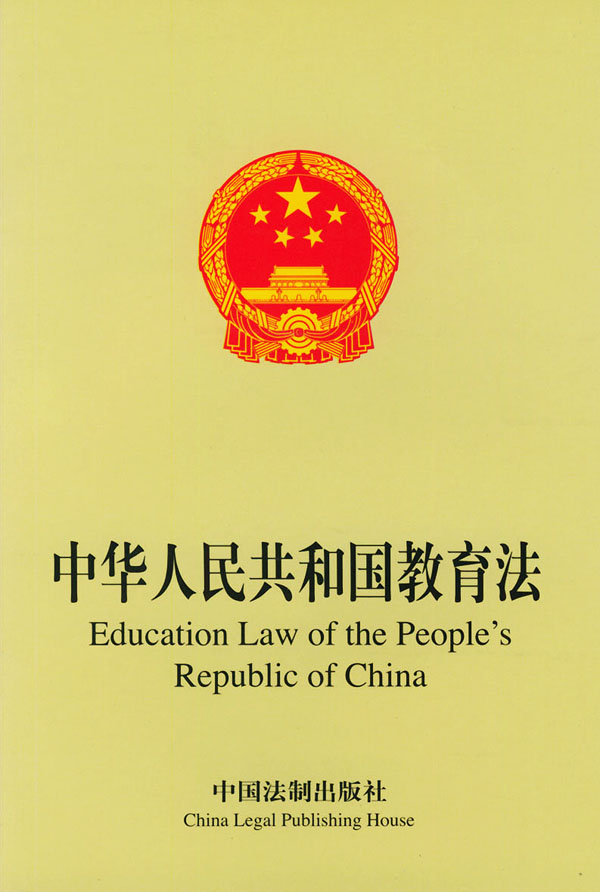
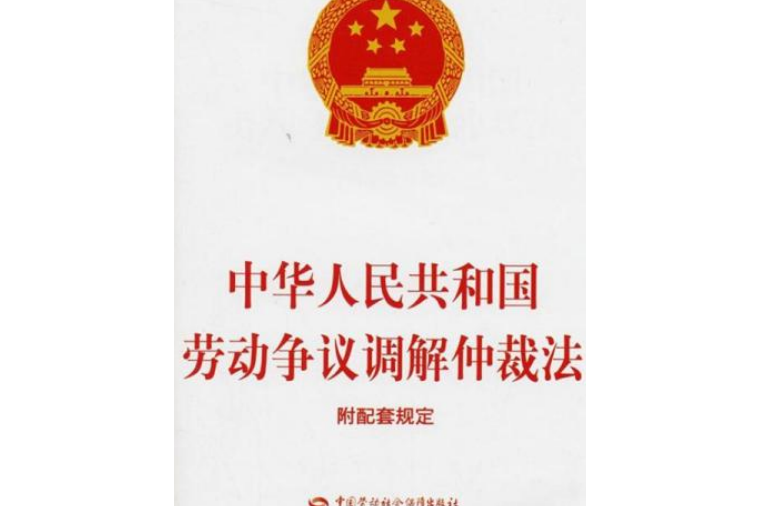
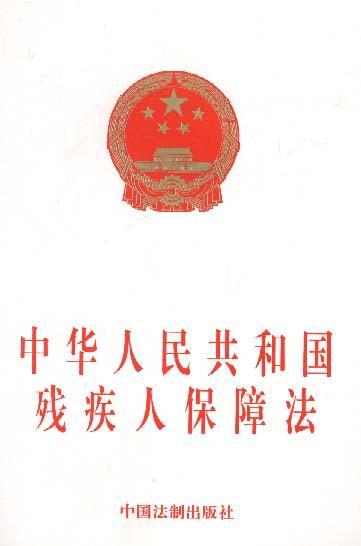
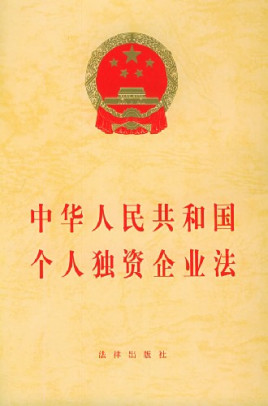
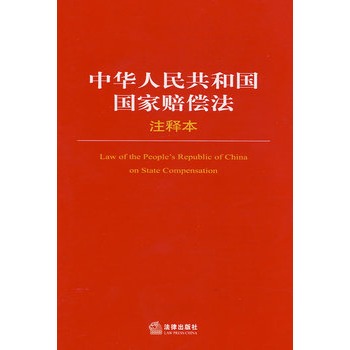
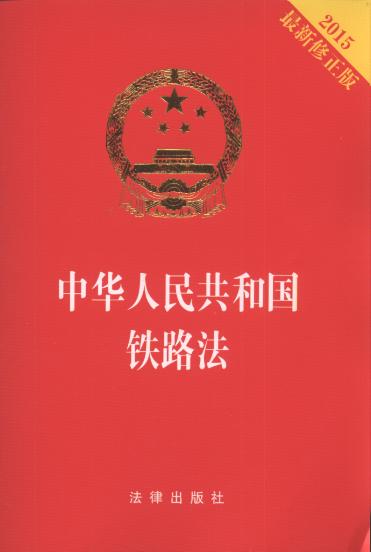
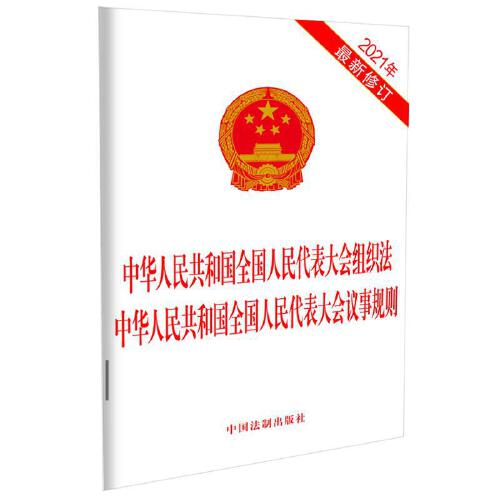


發表評論 取消回複